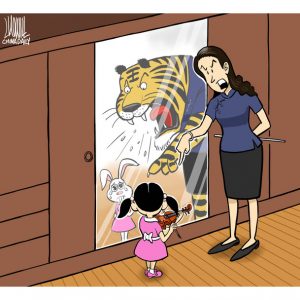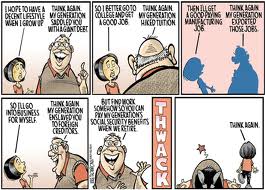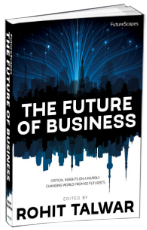[caption id="attachment_182" align="alignright" width="300"]

Source: http://www.allvoices.com/cartoons/c/71772450-tiger-mother[/caption]
‘Tiger mother’ Amy Chua refuses to let her children go to play dates and sleepovers. She protects them from the evils of TV and computer games. She protects them from a whole world outside of violin practice and top grades. Are these types of parents really the opposites of indulgent Helicopter parents or are they rather the extreme version of them?
Amy Chua is hardly the first remarkable Tiger mother. As she proclaims herself, Chinese parents and parents who are first generation immigrants, are often much more authoritarian than ’Western’ parents. So why is she getting so much attention in the media? Good timing is probably the answer.
 In Growing up with Princess Inc earlier this year I wrote about growing gender polarization. In the post I discussed the idea that shifts between androgynous and more overtly gendered fashion trends and body ideals are linked to social and economic fluctuations. Generational experts Strauss and Howe explained in The Fourth Turning that in eras when society struggles to recover from crisis, order, stability and traditional values gain momentum. From social science research we know socioeconomic lower classes tend to embrace traditional gender ideals to a greater degree than does the middle class. The middle class on the other hand, possesses economic and educational resources that allow them to push social boundaries without serious negative
In Growing up with Princess Inc earlier this year I wrote about growing gender polarization. In the post I discussed the idea that shifts between androgynous and more overtly gendered fashion trends and body ideals are linked to social and economic fluctuations. Generational experts Strauss and Howe explained in The Fourth Turning that in eras when society struggles to recover from crisis, order, stability and traditional values gain momentum. From social science research we know socioeconomic lower classes tend to embrace traditional gender ideals to a greater degree than does the middle class. The middle class on the other hand, possesses economic and educational resources that allow them to push social boundaries without serious negative



